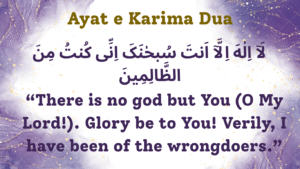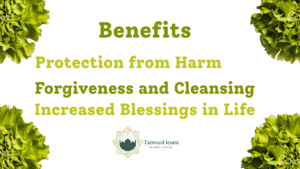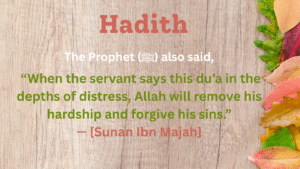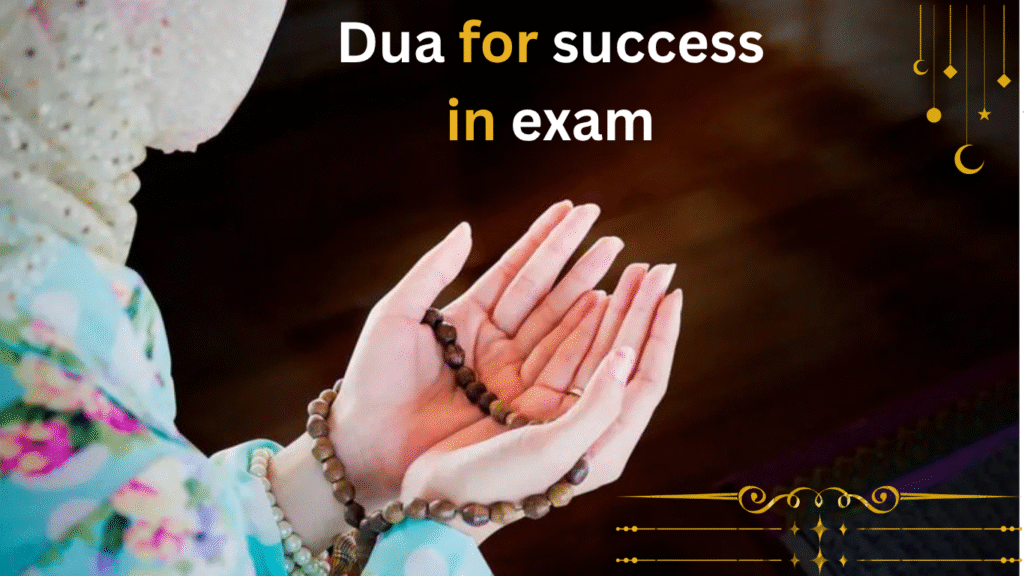The Power of Ayat e Karima in Testing Times
In hard times, I turn to the Qur’an, the last word of Allah. It gives clear directions, Commandments, and principles for human life. One important verse, Ayat e Karima, occupies a special place in this holy book.
Its importance is significant due to an incident with Hazrat Yunus AS. This verse is an excellent sign of mercy, forgiveness, and how Allah accepts and forgives repentance of His servants. The famous dua, Tasbi E Yunus — La ilaha illa anta, Subhanaka, Inni kuntu minaz-zalimin — gives me peace.
A Dua that Resonates Through the Darkness
It was recited by Hazrat Yunus AS inside the belly of a fish/whale, as described in Surah Al-Anbiya, 21, verses 87, 88. Remember Zun-nun, who departed in wrath and imagined no power would reach him. In darkness, he cried to god: “There is no god but thou, glory to thee, I was indeed wrong.”
Allah listened, delivered him from distress, and will deliver those with faith. None is worthy of Worship besides You, exalted, above all weaknesses. Surely, I am among the wrongdoers.
What is Ayat e Karima?
Ayat e Karima is a powerful verse from the Quran, recited by Prophet Younus (AS) when he was trapped in a whale, calling Allah for help from the depths of the sea. His sincere plea brought mercy, delivering him—making this verse deeply significant for Muslims who recite it regularly to seek forgiveness, overcome challenges, and connect with Allah’s care. It holds deep spiritual, emotional, and Islamic impact, offering comfort, peace, and contentment while encouraging believers to repent, thank God, and grow in spirituality.

Ayat e Karima Dua
Arabic:
Transliteration:
Translation in English:
Translation on Urdu:
How to Use Ayat e Karima in Wazifa and Daily Life
Making the Most of Ayat e Karima in Everyday Routine
Using Ayat e Karima in your daily life and wazifa can bring deep spiritual strength and help individuals achieve both worldly and inner goals. This simple practice truly enhances the power of personal supplications when done with intention and patience. From my own experience, regular recitation not only brought ease in my challenges, but also a strong connection with Allah’s mercy and peace of heart.
Here are a few practical and effective ways to incorporate it:
- Understand the meaning of the verse – it’s essential to learn the significance of the words to connect more deeply.
- Recite regularly – it’s recommended to recite it 125 times daily, or as often as possible for maximum benefits.
- Choose specific times – such as after Fajr prayer or before sleeping, which is a common way to build consistency and strengthen faith.
- Keep your intention clear – whether you’re seeking forgiveness, protection, or fulfillment of a desire.
- Start and end with istighfar – asking for Allah’s forgiveness helps purify the heart and improves the effect of your wazifa.
- Show patience and persistence – this reflects your trust in Allah even when no results are seen instantly.
These steps help believers get closer to Allah, gain peace of mind, and truly experience the spiritual beauty this verse carries. I’ve personally felt how these practices bring both emotional clarity and divine ease, especially when life gets overwhelming.

The Benefits of Reciting Ayat e Karima
Spiritual and Emotional Relief
Consistent recitation of Ayat e Karima offers many spiritual and emotional benefits. It brings relief during times of distress and helps in strengthening one’s faith. From my own experience, when life felt overwhelming, this regular practice provided a calming peace that truly helped me emotionally.
Protection from Harm
Reciting Ayat e Karima acts as protection from harm — whether physical, mental, or spiritual. It works as a safeguard for believers, shielding them from various forms of adversity and negative influences, including the evil eye and harmful energies.
Forgiveness and Cleansing
This verse is a powerful tool for seeking Allah’s forgiveness for past sins and mistakes. It encourages sincerity and heartfelt repentance, helping the reciter to purify their soul and feel renewed.
Fulfillment of Heartfelt Wishes
When recited with true sincerity, Ayat e Karima assists in the fulfillment of desires and heartfelt wishes. It builds hope and trust that Allah, SWT, will respond to the prayers made with devotion.
Calming Anxiety and Stress
The calming effect of this verse is well-known. It helps in reducing anxiety, stress, and other mental health challenges by soothing the mind and heart. Regular recitation has personally helped me stay calm during difficult times.
Increased Blessings in Life
Reciting the verse invites abundant blessings or barakah into different aspects of life. This includes not only material benefits but also spiritual richness, reinforcing the believer’s connection with Allah.
Overcoming Life’s Challenges
Whether facing financial problems, health issues, or personal struggles, Ayat e Karima gives strength to overcome difficulties. It reminds us to trust in Allah’s mercy and remain patient while facing life’s tests.
Read More: Dua After Salah
Hadiths Highlighting the Power of Ayat e Karima
“The Prophet Muhammad (ﷺ) said,
‘There is no servant who calls upon Allah with this supplication:
لَا إِلَٰهَ إِلَّا أَنتَ سُبْحَانَكَ إِنِّي كُنتُ مِنَ الظَّالِمِينَ
(There is no god but You; Glory be to You! Indeed, I have been of the wrongdoers),
except that Allah responds to him.’”**
— [Sunan At-Tirmidhi]
The Prophet (ﷺ) also said, “When the servant says this du’a in the depths of distress, Allah will remove his hardship and forgive his sins.”
— [Sunan Ibn Majah]
These hadiths highlight how the prayer of Hazrat Younas عليه السلام is a powerful reminder that sincere repentance and turning to Allah can bring relief and forgiveness.

The Story of Hazrat Younas عليه السلام and the Power of True Repentance
Hazrat Younas عليه السلام was sent as a prophet to guide his nation and invite them to worship Allah alone. When the people ignored his call and rejected the way of truth, he felt deeply saddened and left without waiting for their response. As a result, Allah caused him to be swallowed by a great fish, where he stayed in the darkness of its stomach for forty days. In this extreme hardship, Hazrat Younas realized the mistake of losing patience and the weight of his own sins and wrongdoings. He then prayed sincerely and secretly with the powerful words of Ayat e Karima:
لَّا إِلَـٰهَ إِلَّا أَنتَ سُبْحَانَكَ إِنِّي كُنتُ مِنَ الظَّالِمِينَ
Meaning, “There is no Allah but You, glorified, indeed, wrongdoers.”
This story teaches us that no matter how dark or difficult our situation becomes, turning back to Allah with genuine repentance and humility opens the door for mercy and forgiveness. It reminds me personally that patience and hope in Allah’s mercy should never leave our hearts, especially when facing challenges or mistakes.
Read More: Istikhara ki Dua





